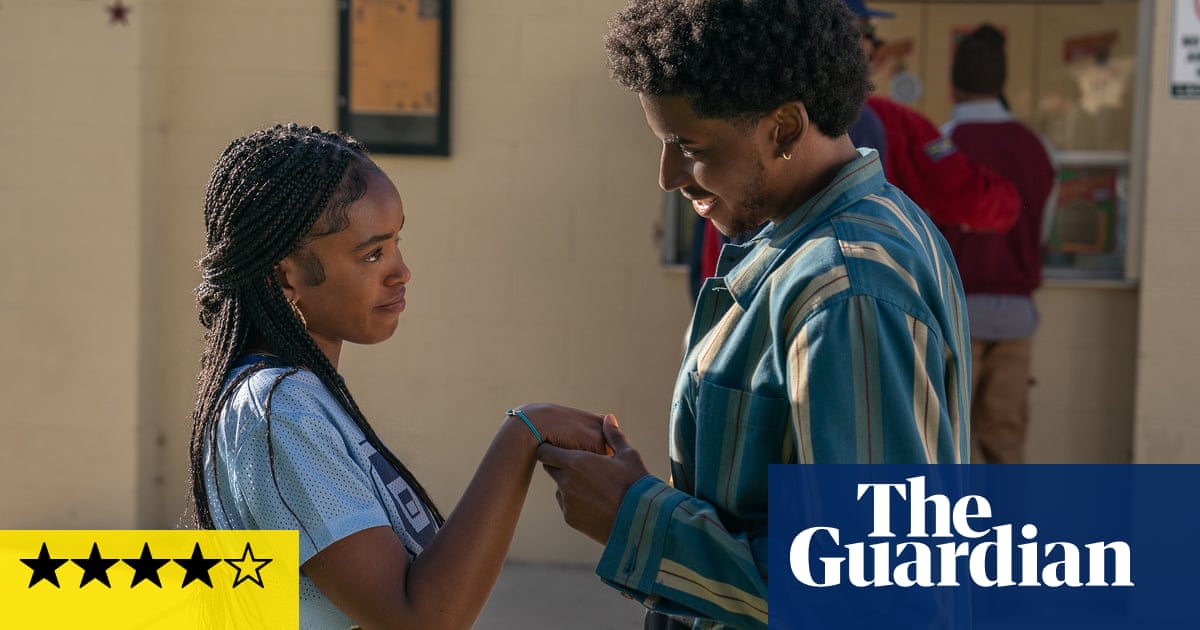Acouple of years ago,Judy Blume noted that book banningwas not only undergoing a resurgence in the US, but was at that point “much worse” than she had noticed during the 1980s. Blume is one to know: her 1975 novel Forever..., about teenage sex and desire, continues to be banned by school districts and libraries, as repression and censorship gallop on at a pace. This Netflix adaptation of Blume’s novel, which loses the ellipsis, is not only timely but important: through it, the story continues to be told, even if it is in a different medium.
This eight-part series, created by Girlfriends showrunner Mara Brock Akil, is sensitive and winningly sweet, while still managing to maintain its defiance and bite. It doesn’t so much update its source material as treat the novel as loose inspiration: details are shuffled around, extrapolated, nudged to the front and pushed to the back. But the spirit of it is intact. The central love story is now between two black students, Justin (Michael Cooper Jr) and Keisha (Lovie Simone) and set in Los Angeles, rather than New Jersey. It sets the action in 2018, neatly avoiding the enormously disruptive effects of the pandemic on teen life, while maintaining the dominance of smartphones, which it writes into the story with ease and authenticity.
Justin is from a wealthy family, and one of the few black students in a largely white school; Keisha is being raised by a single mother and has recently lost her scholarship place at her own school, leaving the family under serious financial strain. Though they knew each other as children, Justin and Keisha are reunited at a New Year’s Eve party and sparks fly. This being a drama, they both bring a lot of baggage to their nascent romance, and it starts to follow a Normal People sort of pattern, as they come together, mess it up, fall apart and repeat the situation, all the way to university.
It shifts between the two leads’ perspectives, asking mature questions about class, gender, mental health and privilege, without aiming a sledgehammer at any of it. Their attraction is instant but they are navigating teen angst together and as individuals, and they don’t yet know themselves, never mind each other. Justin has ADHD and struggles to stick to the academic path his mother, in particular, is keen for him to pursue; Keisha’s ex-boyfriend has shared a video of them engaging in a sexual act, leaving her to be shamed by her peers. There is a scene, around halfway in, where Keisha explains the consequences to the ex who has so thoughtlessly ruined her school life. Often, teen drama can be guilty of either softening the blow, to speak down to its audience, or overdoing it, to ensure it makes its voice heard clearly. This is very good at finding the sweet spot, and that moment is impressive and powerful.
Sex, and how to do it, is a primary focus of the novel, but here, sex both is and isn’t the point. It’s part of Justin and Keisha’s story. They try things out, make mistakes, and get there eventually. It feels true to their age and environments. But there’s a sort of openness that comes, I think, with the characters’ use of smartphones and access to the internet, which makes it less of a furtive endeavour. Their parents are largely supportive and open with them. Justin’s father throws a condom and a cucumber at him, then closes the curtains. Keisha’s relationship with her mother is more complex. “Keep your books open and your legs closed,” she cautions her daughter, unaware of the video that has wreaked havoc on her daughter’s life.
As a teen drama, it works because, Heartstopper-style, its teenagers actually look and behave like teenagers. The performances are excellent, especially Karen Pittman and Xosha Roquemore as the mothers, but it all rides on whether you can buy into what Cooper Jr and Simone are selling, and they sell it perfectly. (Speaking of selling, a certain sports brand features so prominently here that it’s surprising not to see it listed in the cast on IMDb.) It’s a romantic melodrama, so their young love is at the centre of this show’s world, but to its credit for an older viewer, it comes across as knowing and self-aware too.
Early on, Justin has a novel idea for getting himself unblocked by Keisha. (Again, for an older viewer, the amount of blocking and unblocking going on here is truly exhausting.) “This is, like, low-key adorable,” says Keisha’s friend, approvingly. The same is true of the show: Forever is, like, low-key adorable, too.
Forever is on Netflix
